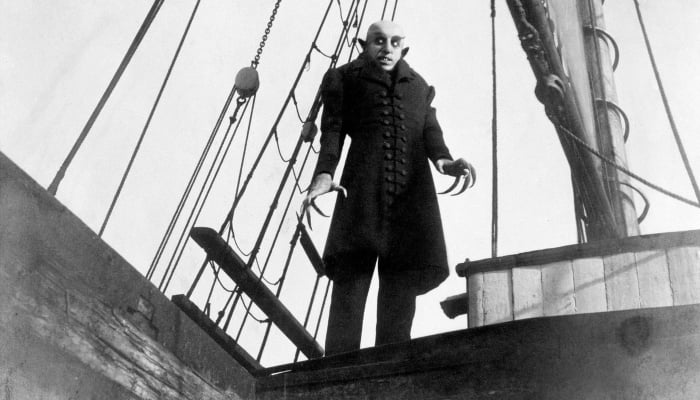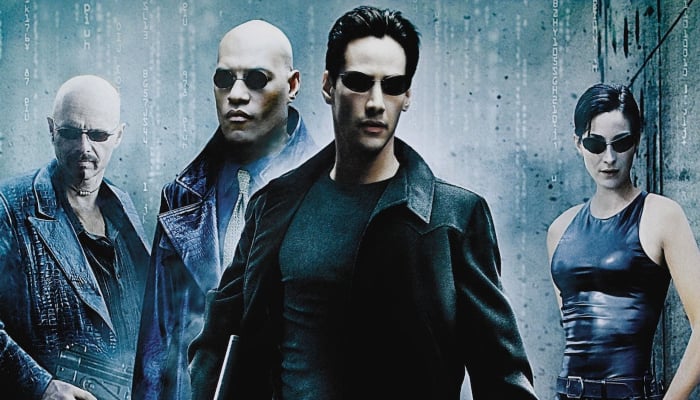Home / Entertainment
Most unexpected movie lawsuits for copyrights — Certain Oscar winning titles will shock you
Check out some of the greatest movies to ever land in legal trouble for plagiarism

Many a time audiences are left in awe of certain filmmaking accomplishments so marvellous, they may seem too good to be true — because sometimes, they are.
While producing a great movie can take a lot out of the creatives who are brave enough to take on the task, there have been instances when those in charge initially got away with taking it easy where the most important element of these projects is concerned; the creation.
From accusations to surefire victories, several motion pictures have either sneakily sought the help of prior existing material, at times entirely getting away with it, whereas others have their names dragged through the mud in public.
Whether these titles win or lose the lawsuits filed against them becomes inconsequential when the fire of doubt is lit in the minds of audiences everywhere, forever planting an unfortunate footnote in the legacy of these films, largely or otherwise.
Let’s go through some of the most shocking claims of plagiarism and copyright infringement in cinema’s history below:
Nosferatu (1922)

Often considered the world’s first vampire movie, which also saw a successful resurgence through Robert Eggers’ latest retelling of the story, the original German made Nosferatu was a lawsuit waiting to happen as soon as it was conceived.
Directed by F. W. Murnau, Nosferatu: A Symphony of Horror was a blatant rip-off of the classic vampire novel, Bram Stoker’s Dracula.
Indeed, only the setting and characters’ names have been modified in the German retelling of the classic vampire tale.
While the movie was a considerable success upon its release, with the critics lauding its bold storytelling and striking visuals, Nosferatu eventually spawned into one of the earliest lawsuits of its kind in the film industry as Stoker’s widow saw the well deserved opportunity to make bank off of her writer husband’s property, which hadn’t seen its due success at the time of Murnau’s film launch, and which was used by the German filmmaker to secure his own glory.
The case was fairly simple — Florence Stoker, the Dracula author’s widow, was the sole owner of her deceased husband’s book rights and thus demanded acknowledgement and financial compensation for what belonged to her.
Though no records from the lawsuit survived — making it unclear exactly how the case transpired — the prosecution eventually won after seven long years of battling it out in the court.
Moreover, while it is not clear how much (if any) of the financial shares from the film were awarded to the Stoker family, the winning party did have all copies of Nosferatu destroyed as part of the settlement.
Since however, the film had already been distributed far and wide, while also owing to legal restrictions, it is understood that a couple of the movie’s prints did make it, which is why the film is available to screen to this day.
Regarding the infamous suit and the movie, Bram Stoker’s great grandnephew, an author based in the US, Dacre Stoker told The Irish Times, “I’m still trying to figure out why these people would have felt they could go ahead and just do this so brazenly.”
Despite the legal battle, he insisted that the end result was a win for all parties involved, adding, “Nosferatu remains and Florence got her money for stage and film rights.”
The Hurt Locker (2008)

The Hurt Locker bagged numerous accolades following its release, while having secured tons of nominations along the way as well.
Its biggest contribution to film history however, is probably its director, Kathryn Bigelow, becoming the first woman to win an Oscar for directing.
Despite the acclaim and the history making achievements, this war action thriller ended up making headlines for some of the things it got wrong — namely, ripping off a man’s life.
Master Sergeant Jeffrey S. Sarver sued the makers of The Hurt Locker in March 2010, alleging that the movie was based on his life, a move he did not consent to.
He further cited infringement of his image and publicity rights, while also putting forth demands for a share in the Oscar winning film’s financial success.
Screenwriter and one of the producers on the movie, Mark Boal, became the centre of Sarver’s claims as the US Army bomb disposal expert had previously sat down for an interview with Boal, which was published by Playboy in 2005.
The Master Sergeant claimed that he was the one who coined the phrases “hurt locker” and “war is a drug”, the former of which became the film’s title while the latter was used as a piece of dialogue in it.
Moreover, the ex army man made claims of defamation as he alleged that the film’s protagonist Sgt. William James, played by Jeremy Renner, was not only based on him but was also a defaming portrayal.
On his part, Boal defended the claims made against him by stating that he had interviewed over a 100 servicemen leading up to his preparation for The Hurt Locker’s script.
Activating the California based Anti-SLAPP law (Strategic Lawsuit Against Public Participation), the filmmakers were able to avoid Sarver’s claims, subsequently securing their victory and the lawsuit’s dismissal.
Notably, the Anti-SLAPP motion protects the rights granted through the American first amendment pertaining to free speech.
For the case, entertainment lawyer Jody Simon also argued that “soldiers don’t have privacy”, while the court eventually ruled that “a significant amount of original expressive content was inserted in the work through the writing of the screenplay, and the production and direction of the movie”, effectively upholding the filmmakers’ free speech rights.
Moreover, in February 2016, the initial ruling was upheld by the Ninth Circuit Court of Appeals, according to whom, “‘The Hurt Locker’ is speech that is fully protected by the First Amendment, which safeguards the storytellers and artists who take the raw materials of life — including the stories of real individuals ordinary or extraordinary — and transforms them into art”.
The Matrix (1999)

A movie which significantly shaped the sci-fi game forever and was hailed as the single most influential work in heralding an age of technological skepticism, The Matrix was, perhaps, always destined to run into creative problems, based on the expansive nature of its storytelling alone.
However, in what turned out to be one of the most eccentric cases of its kind, the Wachowskis directed film was sued by a sole aspiring (or failed) writer, Sophia Stewart.
In June 1999, three months after the movie’s March release, Stewart filed a copyright infringement claim with the FBI, while suing the film’s directorial duo, the Wachowski sisters (then brothers), in 2003.
The case stemmed from Stewart’s own story The Third Eye, which she compiled into a novel back in the 1980s, while she was working as a paralegal in New York City.
Unable to secure a publisher for her work, the writer would later allege that she sent all of her work, including additional illustrations and character biographies, to the future directors of The Matrix in 1986, having discovered an advertisement placed by them for potential sci-fi story ideas which the duo promised to develop into comic books.
Claiming that she never heard back from them, Stewart was compelled to sue Lana and Lili Wachowski after viewing their film 13 years later and finding that it was largely based on the work she sent them (allegedly, of course).
What sets apart this particular case from the rest of its kind is the nature of the reporting around it.
For years, Sophia Stewart was reported to have won the case against the Wachowskis, given the fact that she was hailed as “Mother of ‘The Matrix’” by an article published by the Salt Lake Community College Globe.
Written by a second year communications student, the article falsely claimed that Stewart beat creators of the popular sci-fi movie while also winning a large payout.
The news eventually took off and was peddled as the absolute truth by multiple sources until well into the 2010s.
On the contrary, Stewart’s claims were entirely dismissed by the court, as they ruled that she “will take nothing by way of her complaint against defendants.”
Furthermore, she never showed up for any of the days which the hearing lasted in the court, while the judge also countered that her legal team “had not entered any evidence to bolster its key claims or demonstrated any striking similarity between her work and the accused directors’ films.”
Interestingly enough, Sophia Stewart also created a website called TruthAboutMatrix.com to maintain her case, further telling Time in 2013, “I won that judgment, and those judges are going to give me my money, and Warner Bros is going to pay it.”
Talk about a real red pill, blue pill moment…
The Lion King (1994)

Disney’s beloved classic, The Lion King, has faced several claims of plagiarism in fact — from Shakespeare to Japanese cinema, the list is rather fancy.
However, only one of these claimants were able to successfully bring down the filmmaking conglomerate to meet their demands.
It was the family of Soloman Linda, a South African singer and composer, who brought their suit against Disney in connection with copyrights of the song, The Lion Sleeps Tonight.
Featured briefly in the 1994 film, the track was originally composed and performed by the late artist in 1939, under the title, Mbube.
Linda initially recorded the tune with a singing group called the Evening Birds in Johannesburg, and despite the popularity of his creation, the innovator died in poverty in 1962, with less than $25 in his back account.
The composer’s daughter, Elizabeth Gugu, had revealed, “When I saw ‘The Lion King’ on television, I was mad. It reminded me that they were using the song without our permission and stealing our money.”
Though the song had been re-recorded by various artists over the years and went on to feature in many other productions, Disney’s tragedy was probably that it put forth the most famous instance of its usage and thus came into the notice of Linda’s family.
Therefore, the family demanded $1.6 million in damages and demanded future share in the profits of the film and their song.
While Disney claimed that they went about obtaining the license to use the song from Abilene Music, it was later ruled that the rights to the song should have reverted back to Linda’s heirs 25 years after they had been sold by their father, according to the law of the time.
Thus, Solomon Linda’s family won their case against Disney, Abilene, and Gallo Records, the company who initially acquired the rights from the Zulu migrant musician, in 2006.
While the sum which the prosecution was awarded by the court was not specified, it is understood to be substantial.
Owen Dean, a South African based lawyer for the Linda family, told the press at the time, “The settlement involves a payment of back royalties to the family and the right to participate in the royalties in the future and that’s on a worldwide basis.”





